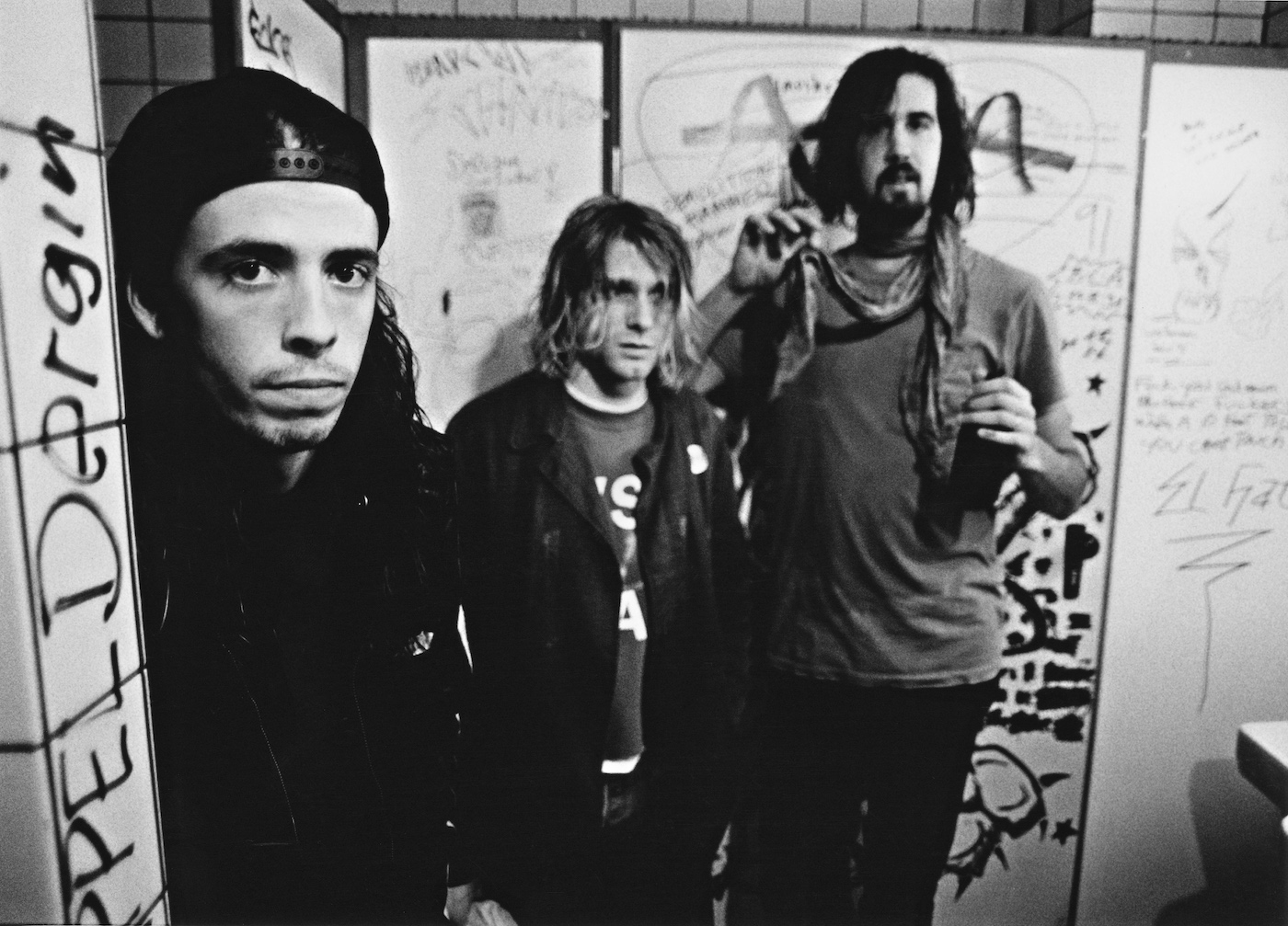Nirvana’s ‘Polly’ Was About a 14-Year-Old Girl Who Was Kidnapped and Tortured Before Escaping
Smack dab in the middle of Nirvana‘s second album, Nevermind, lies a song with a horrifying backstory. The three-minute composition, “Polly,” is sung from the perspective of a real-life rapist who abducted and tortured a 14-year-old girl in the Pacific Northwest in 1987. Why would a grunge band address toxic masculinity through music? Here’s what we know.
[Warning: This article discusses violent crimes, including kidnapping, torture, and sexual assault.]
The violent crime that inspired Nirvana’s ‘Polly’

In 1967, a fiend named Gerald Friend was convicted of kidnapping and viciously mistreating a girl. Despite being ordered to spend 75 years behind bars, he escaped from prison twice yet made parole and repeated the offense two decades later.
Friend’s second (proven) victim was also a teenager, and he subjected her to unspeakable acts while holding her captive in his mobile home. Eventually, the young woman escaped, and her captor was arrested. The heinous event unfolded in Tacoma, not far from Nirvana frontman Kurt Cobain’s home in Aberdeen, Washington.
According to Grunge, Cobain likely read about the unidentified teenager’s kidnapping, torture, and subsequent escape in a local newspaper, The Spokesman-Review. Grunge explains that the atrocious story inspired what the Nirvana singer later described to Unmask Us as “an anti-rape song.”
Nevermind sold a mere 50,000 copies on its first release. But by January 1992, “Smells Like Teen Spirit” propelled the record to the top spot on the Billboard Albums Chart, displacing Michael Jackson’s Dangerous along the way. Nevermind producer Butch Vig especially delighted at being part of a project that “buried hair metal” bands like Skid Row, The Daily Beast reports.
Nirvana frontman Kurt Cobain challenged masculinity and advocated women’s rights
The Australia-based literary magazine Kill Your Darlings took a look back at “Polly” on the 20th anniversary of Cobain’s alleged suicide. Noting that Cobain was neither a genius nor a saint, KYD called the late songwriter “a friend to all those marginalised, outcast, or different in some way.” He gave a sound to the unheard while raging against every sort of -ism in the book.
Cobain challenged the typical white male rock star archetype and provided a flannel-clad shoulder of support to feminists, and he did so with metal chords, punk outrage, and catchy pop melodies. He didn’t always get it right, but Cobain’s efforts to support the LGBTQ community were sincere.
“Kurt didn’t strive to be any woman’s protector or saviour, but instead, their ally and friend. And when we think about what we want from male feminists, that’s pretty freaking cool.”
Kill Your Darlings
Cobain’s journals contained numerous references to rape, calling it “one of the most terrible crimes on Earth.” Radio listeners who thought Nirvana songs such as “Polly” and “Rape Me” glorified crimes against women got it wrong. As KYD explained, Cobain expressed personal dismay that women were by necessity taught how to defend themselves against sexual assault when men should be taught not to rape.
In the liner notes for Nirvana’s follow-up album, Incesticide, Cobain made a simple request of his fans:
“If any of you in any way hate homosexuals, people of different color, or women, please do this one favor for us — leave us the f— alone! Don’t come to our shows and don’t buy our records.”
The band’s appeal lies in its darkness
Part of Nirvana’s everlasting appeal is its darkness. Even hummable pop tunes such as “Floyd the Barber” are apt to deliver a fearful message in the lyrics. In the case of “Floyd,” Cobain proposed a nightmare scenario in which he was abused and killed by the cast of The Andy Griffith Show run amok.
On a cheerier note, the recording of “Polly” that wound up on Nevermind was achieved with a $20 pawnshop guitar that was held together with duct tape and barely stayed in tune, Cobain told Guitar World in February 1992.
How to get help: In the U.S., call the RAINN National Sexual Assault Telephone Hotline at 1-800-656-4673 to connect with a trained staff member from a sexual assault service provider in your area.
How to get help: If you or someone you know has been sexually abused, text HOME to the Crisis Text Line at 741741 for free and confidential support.


